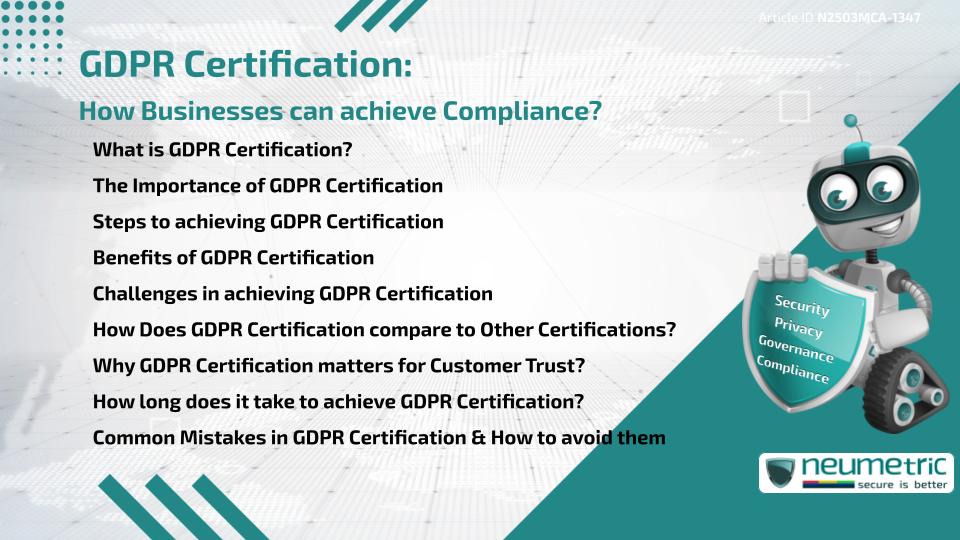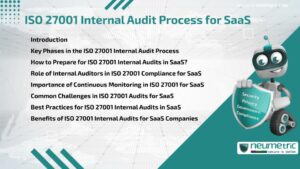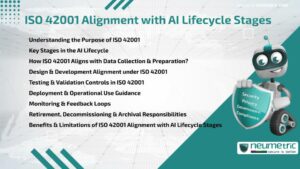Table of Contents
ToggleIntroduction
In today’s data-driven world, protecting Personal Data is crucial. The General Data Protection Regulation [GDPR] is a landmark piece of legislation designed to protect Individuals’ Privacy & ensure Businesses handle Personal Data responsibly. One of the key milestones in achieving GDPR Compliance is obtaining a GDPR Certification. In this article, we will explore what this Certification entails, how Businesses can achieve it & why it matters for both Companies & their Customers.
What is GDPR Certification?
GDPR Certification is a voluntary process that Businesses can undertake to demonstrate Compliance with the [GDPR]. While it is not mandatory, obtaining Certification serves as Proof that an Organisation follows Best Practices for Data Protection. It provides reassurance to Customers, Clients & regulators that an Organisation is committed to safeguarding Personal Data.
The Importance of GDPR Certification
Obtaining GDPR Certification not only boosts a Company’s Reputation but also enhances Trust with Customers. In a time when Data Breaches are becoming more common, Customers are more likely to engage with Businesses that are transparent about their Data Protection Practices. Moreover, GDPR Compliance helps mitigate the Risk of Hefty Fines, which can be as much as 4% of a Company’s Annual Global Turnover or € 20 million (whichever is greater).
Steps to achieving GDPR Certification
Achieving GDPR Certification involves several key steps. Each of these steps requires careful Planning, Collaboration & a thorough understanding of the Regulation.
1. Understand the GDPR Requirements
Before pursuing Certification, Businesses must first understand the key provisions of the GDPR. This includes ensuring that Personal Data is processed Lawfully, Transparently & for Specific Purposes. Businesses should also be prepared to demonstrate Compliance in areas such as Data Subject Rights, Data Protection Impact Assessments [DPIA] & Data Breach Notification Procedures.
2. Conduct a Data Protection Audit
A Data Protection Audit is an essential part of the Certification process. This Audit assesses current Data Processing activities, identifies any Risks & evaluates whether the Organisation’s Data Protection measures align with the GDPR. Audits help identify Gaps & areas where Improvements are needed, such as inadequate Data Storage Practices or Lack of Consent Mechanisms.
3. Implement Necessary Changes
Once the Audit is complete, Businesses must address any shortcomings identified. This may involve updating Privacy Policies, enhancing Data Security Measures or implementing better Consent Management Systems. Organisations may also need to train Staff on Data Protection Practices & ensure that everyone understands their responsibilities in handling Personal Data.
4. Choose an Accredited Certification Body
The next step is to select an Accredited Certification Body to verify Compliance. These bodies assess the Organisation’s Practices & confirm that they meet the necessary criteria for GDPR Certification. It is crucial to choose a Certification Body that is officially recognised by the European Data Protection Board [EDPB].
5. Apply for Certification
Once an Organisation has made the necessary adjustments & is confident in its Compliance, it can apply for GDPR Certification. The Certification Body will conduct a thorough review of the Company’s Practices, Policies & Systems to ensure that they meet the GDPR’s stringent requirements.
6. Maintain Certification
Achieving GDPR Certification is not a one-time event. Businesses must continually monitor their Data Protection Practices & ensure they remain compliant with the Regulation. Regular Audits & Updates to Privacy Policies may be necessary to maintain cCertification. Failing to uphold Compliance can result in the Certification being revoked.
Benefits of GDPR Certification
Achieving GDPR Certification provides several advantages, including:
- Enhanced Reputation: Certification shows a Company’s commitment to Data Protection, improving its standing in the Market & increasing Customer Trust.
- Competitive Advantage: As more Businesses prioritise Data Security, having GDPR Certification can differentiate a Company from its competitors.
- Risk Mitigation: Certification helps minimise the Risk of Fines & Reputational Damage in the event of a Data Breach.
- Customer Confidence: It signals to Customers that their Personal Data is being handled with care, fostering stronger relationships.
Challenges in achieving GDPR Certification
While there are many benefits, there are also challenges to achieving GDPR Certification:
- Cost: The process of achieving Certification can be costly, especially for Small & Medium-sized Businesses. This includes costs related to Audits, Staff training & implementing necessary changes.
- Complexity: GDPR Compliance is a complex, ongoing process that requires careful attention to detail. Businesses may struggle to navigate the Regulations, especially those with limited experience in Data Protection.
- Resource Intensive: Achieving & Maintaining Certification requires significant resources, both in terms of time & manpower. Smaller Organisations, in particular, may find it challenging to allocate the necessary resources.
How Does GDPR Certification compare to Other Certifications?
It is important to note that while GDPR Certification is valuable, it is not the only Data Protection Certification available. Other Certifications, such as ISO 27001 for Information Security Management Systems [ISMS], also offer assurances about an Organisation’s commitment to Data Protection. However, GDPR Certification specifically focuses on Compliance with European Data Privacy Laws, making it particularly relevant for Businesses operating within the European Union or dealing with EU Residents’ Data.
Conclusion
GDPR Certification is an essential tool for Businesses looking to demonstrate their commitment to Data Protection & Privacy. While the process can be complex & resource-intensive, the benefits of achieving Certification far outweigh the challenges. By following the necessary steps & maintaining Compliance, Businesses can build Trust with Customers, reduce the Risk of Fines & position themselves as leaders in Data Security.
Takeaways
- GDPR Certification is a voluntary process that helps Businesses demonstrate Compliance with the General Data Protection Regulation.
- Achieving Certification requires a thorough understanding of the GDPR, a Data Protection Audit & Ongoing Compliance efforts.
- The benefits of Certification include enhanced Reputation, Competitive advantage & improved Customer Trust.
- Challenges include the Cost, Complexity & Resource demands of the Certification process.
FAQ
What is GDPR Certification?
GDPR Certification is a process that allows Businesses to demonstrate Compliance with the General Data Protection Regulation, offering assurance that they handle Personal Data responsibly.
Why is GDPR Certification important for Businesses?
GDPR Certification helps Businesses gain Customer Trust, provide protection against Fines & ensure that Data Processing activities must comply with Data Protection Laws.
How long is it estimated to get GDPR Certification?
The timeline for obtaining GDPR Certification depends on the complesity & size of the Business. It can take up to several months, depending on the Scope of the Certification & the readiness of the Company.
Is GDPR Certification mandatory?
No, GDPR Certification is voluntary. However, it offers benefits like increased Customer Trust & reduced Risk of Non-compliance Penalties.
How can Businesses maintain GDPR Certification?
Businesses must continuously monitor & update their Data Protection Practices, conduct Regular Audits & ensure that all processes remain compliant with the GDPR.





